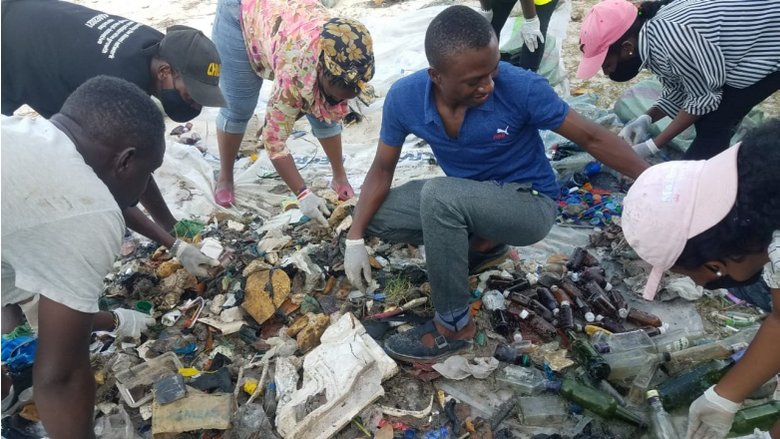Rocha is the Executive Director of the Tanzania-based environmental NGO , which is working with the World Bank to deliver a local marine debris control and coastal zone management project.
Funded through the World BankˇŻs PROBLUE Trust Fund, the project is uncovering key baseline data on plastic types, amounts, and sources to inform a decision on how to tackle the mounting plastic pollution in the country.
In addition to Rocha, at the helm of this project is and her data team at the University of Dar es Salaam UDSM, as well as the , a drone and technology lab. Together, this unlikely team of experts, drawn from various backgrounds, focused on 11 coastal hotspotsˇŞ three in Zanzibar and eight on TanzaniaˇŻs mainland coastˇŞ to analyze the kinds of marine plastic waste that end up there and their most likely sources. In speaking with this team, it was clear that to start to solve the problem of marine pollution development workers should consider three fundamental principles: Inclusivity, Innovation, and Impact:
Principle 1: Inclusivity. The inclusion of varying voices, lived experiences, and expertise is imperative to achieving lasting and sustainable development. This level of inclusive planning and execution ensures that WBG projects and their outcomes are within the ownership and control of local populations. Beyond local buy-in, the principle of inclusivity also delivers more accurate data. According to Dr. Lugendo, is it imperative that teams, ˇ°collect contextual information from a wide group of stakeholders.ˇ± As a data expert, Dr. Lugendo stresses that this principle delivers results ˇ°that you could otherwise not get through surveys, waste collection and analysis.ˇ±
Principle 2: Innovation. While NGOs and data experts worked on-the-ground to monitor and assess plastic debris on the coast, this project went a step further by introducing a collaboration between human teams and technology to expand the projectˇŻs findings. Tanzania FlyingLabs worked from the sky, using drones to collect images from the same 11 hotspots and create a more comprehensive picture of the status of marine litter in these areas. By flying drones above the teams on the beach, Rocha, Dr. Lugendo, and partners delivered a nuanced understanding of the state of plastic pollution on the coastline, while also tracking the projectˇŻs progress over time.
Principle 3: Impact. The GIS Department at the University of Dar es Salaam has combined the data collected on the ground with the images taken by the drones to put together a more comprehensive analysis of the project for the public and other interested parties. In addition to drones, Dr. Lugendo shared that they used focus groups ˇ°involved in waste related matters, including the value chain on daily basis.ˇ± This diverse set of respondents were drawn from fisheries, waste pickers, recyclers, transporters, and landfill managers, as well as government officials from planning, fisheries, sociology, and environment departments.
Harnessing the ˇ°Three IˇŻsˇ± ¨C Inclusivity, Innovation, and Impact ¨C to Achieve Sustainable Development
Drawing on an inclusive array of stakeholders and innovative technologies is critical to move the needle on marine debris. To this end, Rocha emphasized, ˇ°Having a holistic approach is extremely important. Our work shows that aligning data with policy advocacy and the implementation of tailored solutions can produce perspective and impact.ˇ±

